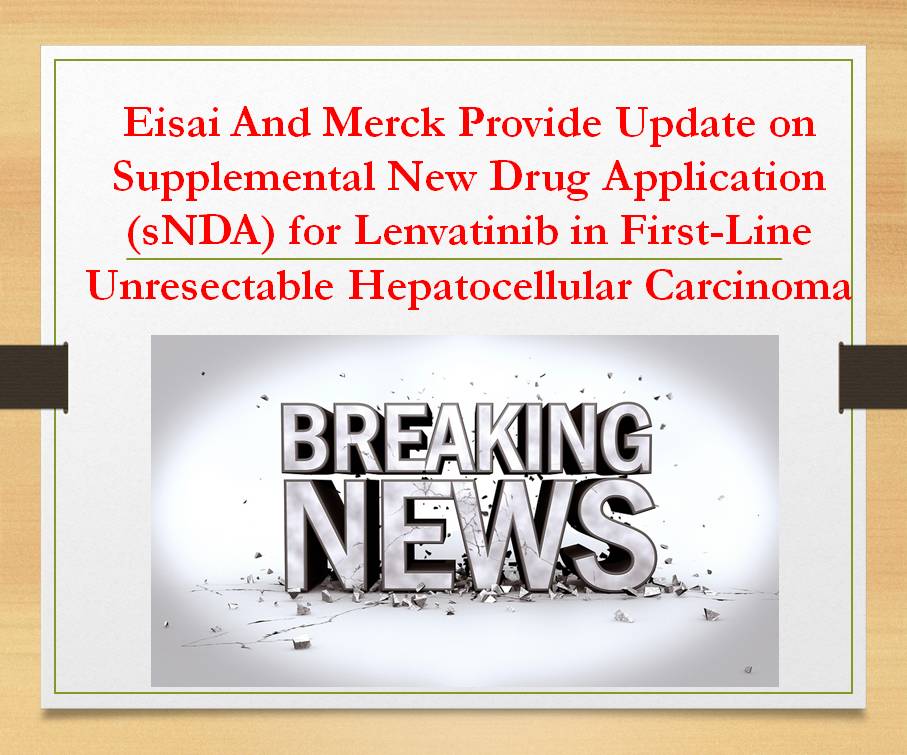
Eisai Inc. and Merck (NYSE: MRK), known as MSD outside the United States and Canada, announced today that the U.S. Food and Drug Administration (FDA) has extended the action date for the supplemental New Drug Application (sNDA) for lenvatinib for the potential first-line treatment of patients with unresectable hepatocellular carcinoma (HCC).
The FDA has indicated that the extension of the Prescription Drug User Fee Act (PDUFA) date is needed to allow additional time for review of the application. The agency expects to complete the review on or before August 24, 2018, thus extending the target action date by a standard extension period of three months from the original PDUFA action date of May 24, 2018.
Eisai, as the marketing authorization holder, is working closely with the FDA to support the continued review of this application.
Lenvatinib (available as LENVIMA®) is approved by the U.S. FDA for the treatment of locally recurrent or metastatic, progressive, radioactive iodine-refractory differentiated thyroid cancer. Lenvatinib is also approved by the U.S. FDA in combination with everolimus for the treatment of patients with advanced renal cell carcinoma following one prior anti-angiogenic therapy.
About LENVIMA® (lenvatinib)
LENVIMA® (lenvatinib) is a kinase inhibitor that is indicated for:
Lenvatinib, discovered and developed by Eisai, is a receptor tyrosine kinase (RTK) inhibitor that inhibits the kinase activities of vascular endothelial growth factor (VEGF) receptors VEGFR1 (FLT1), VEGFR2 (KDR), and VEGFR3 (FLT4). Lenvatinib also inhibits other RTKs that have been implicated in pathogenic angiogenesis, tumor growth, and cancer progression in addition to their normal cellular functions, including fibroblast growth factor (FGF) receptors FGFR1-4; the platelet derived growth factor receptor alpha (PDGFRα), KIT, and RET.